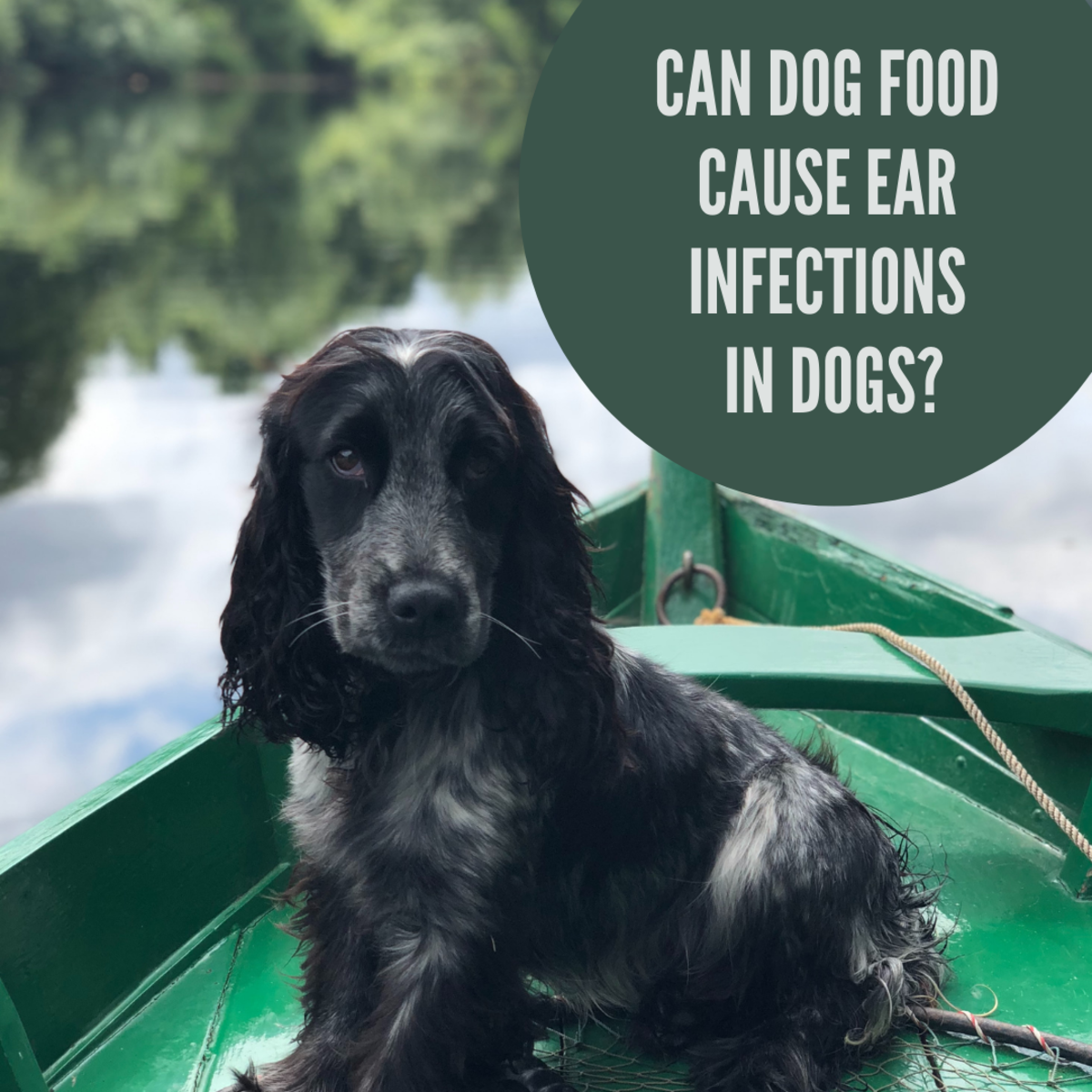- HubPages»
- Pets and Animals»
- Dogs & Dog Breeds»
- Dog Food
Learning About Dog Food Allergies
Of all the things in the world that can make anyone miserable, it is an allergy to some kind of common food. In humans, this often happens with specific kinds of foods like peanuts, shellfish, or certain kinds of fruits. Dogs can also develop allergies to food, and it can make them just as miserable. Dogs can develop a whole range of symptoms in response to food allergies that will keep them scratching and biting themselves all day long.
Of all the kinds of allergies that your dog can develop, dog food allergies are the third most common, right behind allergies to flea bites and allergies to inhaled substances. This means that dog food allergies are quite common in many dogs. But what can you do to ease the suffering of your canine friend? Read on to discover how dog food allergies are diagnosed and treated.

What Are Dog Food Allergies?
Many dogs develop allergies to specific foods or food types during some part of their lifespan. These dog food allergies most often occur between the ages of two and six years, but really can happen anytime in your dog’s life. The type of dog you own doesn’t seem to matter much in the incidence of dog food allergies either since most breeds can develop allergies at some point. Having your dog neutered or spaded also has little effect on the incidence of food allergies.
Dogs can eat a type of food for many years and then all of sudden become allergic to it. This fact can make diagnosing dog food allergies rather difficult. Also, although there are some common classes of food that dogs are often allergic to, any number of different foods can trigger an allergic response depending on the individual dog. Proteins are one class of foods that are commonly allergenic in dogs, with soy, wheat, and eggs being other allergy culprits. As you can see, those ingredients most likely to cause an allergic reaction in dogs are those they most often get in dog foods.
Symptoms of Dog Food Allergies
Dog food allergies manifest in symptoms that can affect many areas of the skin and body of a dog. Itchiness, increased scratching and biting of the skin, and the development of hot spots are common in dog food allergies. The skin may become red and sore and there may be patches of hair loss. Skin infections can occur as can increased incidences of ear infections with the presence of dog food allergies. Because other kinds of allergies or skin problems can result in these same symptoms, the diagnosis of dog food allergies often can’t be made by way of these symptoms alone.
Diagnosing Dog Food Allergies
Often, a veterinarian will try to rule out other kinds of allergic reactions in dogs first before deciding on a diagnosis of dog food allergies. Once such things as flea and inhalant allergies have been ruled out, the vet may place your dog on a novel food trial to distinguish the type or types of foods causing the dog food allergies. These food trials consist of giving your dog a new kind of food with new ingredients over a number of weeks. If the allergy symptoms go away during this period, it is likely that something from the previous diet was causing the allergy. Ingredients can then be reintroduced one at a time to look for the return of symptoms. If at some point symptoms do return with the addition of a certain ingredient, it is then probable that food is the allergen in question.
Treatment of Dog Food Allergies
Although the diagnosis of dog food allergies can be difficult and time consuming, the treatment is really rather simple. Once the allergen has been determined, it is a simple matter of eliminating that type of food from your dog’s diet. If it is a type of food that is common to many commercial dog foods, this may mean you will need to purchase specialty dog food for your pet. Such brands as Science Diet, Natural Balance, and Canidae offer foods for dogs with dog food allergies that help in many cases.
One thing to remember is that even when you take your dog off of one type of food, a new dog food allergy can develop later as the dog becomes sensitized to its new food. However, treatment for dog food allergies is often successful, and you can eliminate much of the discomfort of your faithful family friend.
Following links will help you keep your dog healthy
- Dog Stoller Information
Lets face it, your dog can get tired out. If you are out on a walk around town, sometimes your dog can get a little worn out...... - Dog Kennels for Boarding
As a dog owner myself, I know how gut-wrenching it can be to leave your dog behind when going on a trip. After all, are they .....
- Doggles
If theres one thing about dogs, its that they are always up to something. Its why we love our dogs, because of their........
- Buying a Dog Gate
There are many reasons people choose to purchase a dog gate. Their dog may be urinating or defecating all over the house when ........ - Dog Day Care
Doggie day cares are a booming business, and for good reason. People love their pets, and they want to make sure that when they are ...









